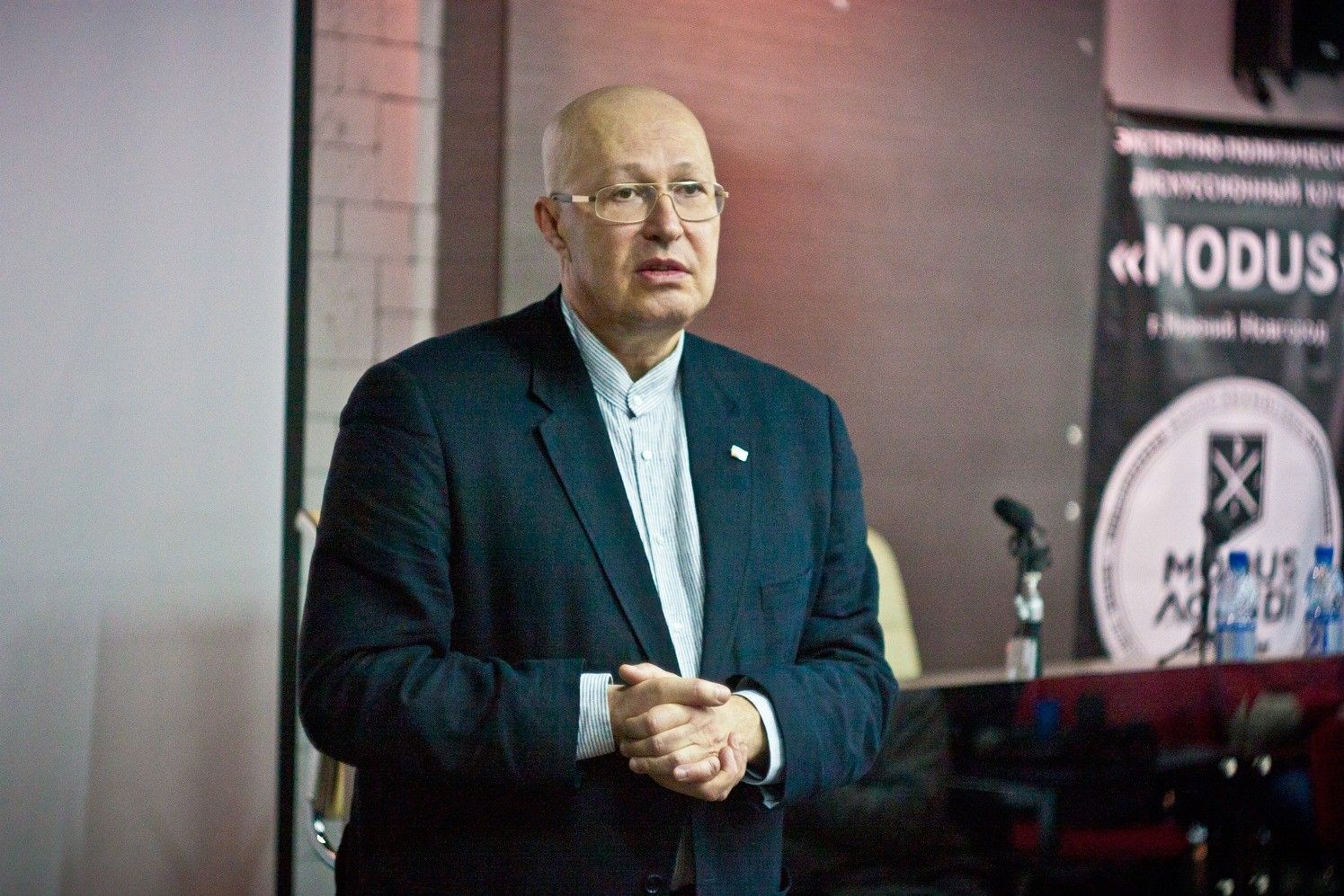
Russian historian: "When there is conflict and values are affected, there can be no objectiveness"
A well-known Russian historian and social activist Valeriy Solovey spoke to UNIAN about the secrets used by the Russian propaganda and the things of which Ukraine should be proud.
A Russian historian, Doctor of Historical Sciences, Professor Valeriy Solovey is an extraordinary person. Working at a Russian university, which trains personnel for government agencies, he allows himself to be free in his judgments and conclusions. Despite his experience and eloquence, Solovey is an unwanted guest on the Russian federal TV channels, because he just doesn’t fit into a parallel reality created by the Russian mainstream media.
His book titled "The Ultimate Weapon" was published in the Russian Federation this year. The author explains with the examples of military and information confrontation between Kyiv and Moscow, how propaganda is created and how it works. He also explains what psychological warfare and media manipulation is. Solovey calls television a "weapon of mass destruction," and it is difficult to argue. It is due to the Russian TV that millions of Russians have believed in the existence of “Ukrainian fascists.”
The historian believes that the Victory Day in Russia, instead of being a day of mourning, has turned into a day of national self-assertion, as the Russians have nothing else to be proud of. He also stresses that Ukraine has really stood strong in the confrontation with Russia. And that is a real reason for a real – not fictional – pride. In an interview with UNIAN, Valery Solovey explains how the Russian public was fooled and when the TV will weaken its influence on the minds of the Russian people.
Where is the nerve center of Russian propaganda that creates definitions used in the Russian media with regard to Ukraine: "radicals," "punishers," "junta, "siloviki," or "brotherly people"?
In Russia, it’s not a secret for people interested in politics where this think tank, which among other things deals with propaganda, is located. This is the administration of the president of the Russian Federation. Everyone knows the chief curator of the Russian media, Mr. Gromov, deputy head of the Russian president’s staff. It’s in his circle, where these definitions are produced. They say about themselves: "We are creating new visions." These visions are then given to the mass media, which, upon receiving such instructions, act based on their professionalism and flexibility.
This system works very well, judging by the impact it has had on the minds, hearts, and souls of my compatriots. However, none of the propaganda machines can succeed indefinitely. And it’s even more so, if it faces the fact that the reality is increasingly at odds with the propaganda. At the end of last year, propaganda reached its limits, and now its influence begins to wane. Indeed, such influence has traumatized the population seriously, leaving a very deep groove in the collective brain of the Russians, but the people are no longer interested in the propaganda stories in foreign policy news. The polls show that Russians are increasingly interested in the internal problems. They are depressed with the fact that the internal threads are limited to some funny stories. That is, the algorithm is still applicable: talk about foreign policy and entertain people. It's starting to get annoying.
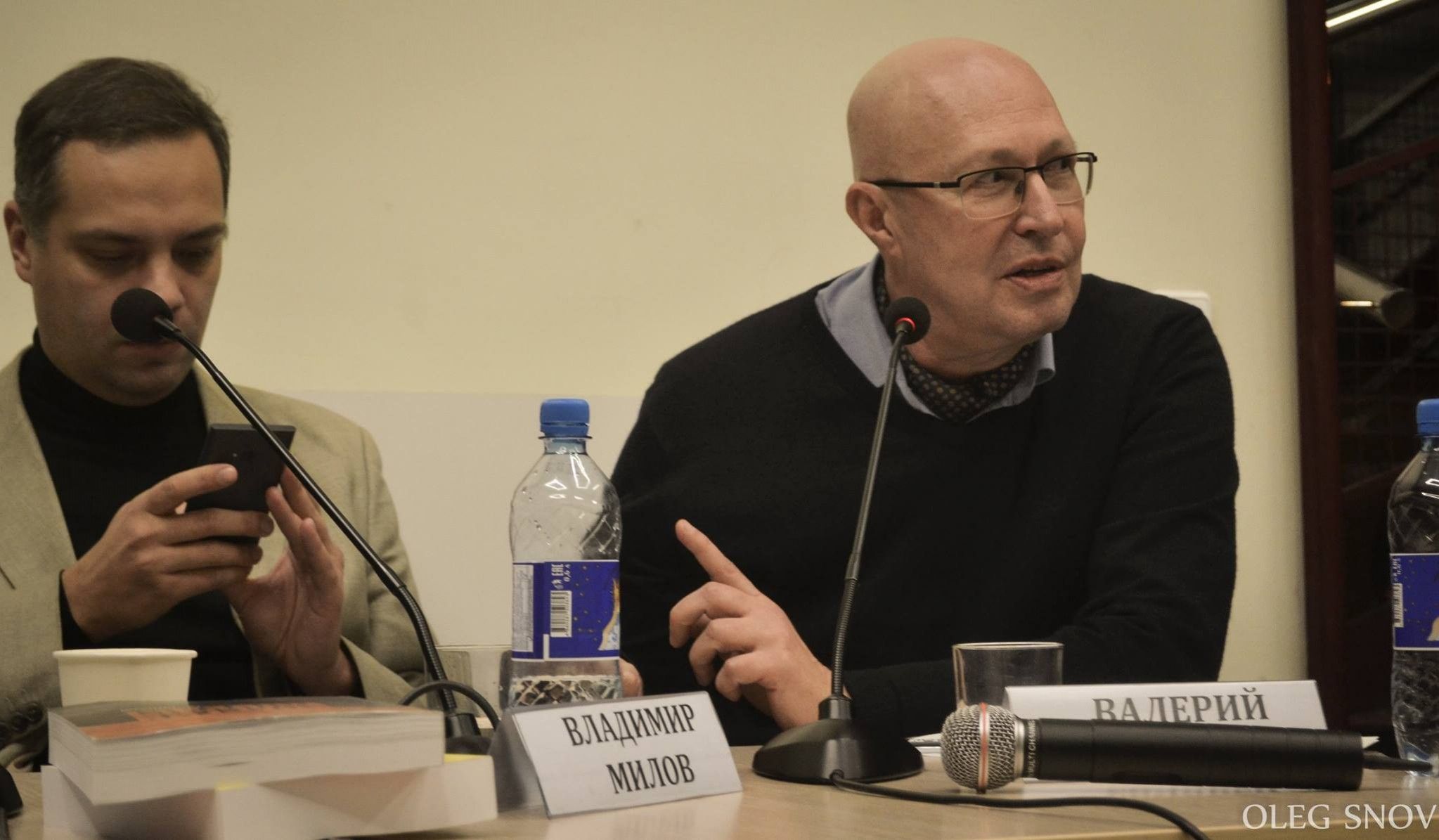
A clear indication of the exhaustion of the propaganda effect are the polls by Levada Center, showing that: Putin's popularity has slid back to a pre-Crimea level. And more importantly, half of Russian citizens consider Putin responsible for the rampant corruption in the country. This means that alternative opposition propaganda – all these reports about shell companies and corruption in the Russian elite – are actually becoming effective.
At the moment, the official propaganda machine has the absolute predominance. But I think it will start falling apart at the end of this year - the beginning of 2017. We will see how people, even being traumatized, will no longer believe the official propaganda. And then we will see that in a few days, this veil will collapse. It won’t take long for the illusion created by the propaganda to collapse.
How will the agenda on the Russian federal TV channels change, based on such sentiments in Russian society? Will there be more of domestic news, or will the people still be fed with the "crucified boys"-type of stories?
Unfortunately, our propaganda can turn to the internal policy, because the situation is extremely unfavorable within the country. It’s better to speak of success, but there’s absolutely nothing the authorities can boast in domestic policy. There are no signs of improving, the situation is only getting worse. So are the two main themes: entertainment and foreign policy. It’s about the whole world respecting Russia, being afraid of it, it’s about our "Night Wolves" biker gang roaming the European cities and laying wreaths everywhere, it’s about us having excellent leadership and the world's best army.
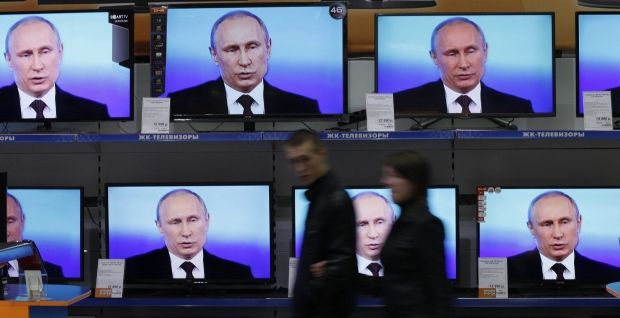
It’s a compensation for the internal problems, which, in fact, just does not work. Toward the autumn, we will see a focus on the elections and on other inner agenda, which is quite natural. I don’t dare look further, as it will much depend on what will happen this autumn, if anything at all.
What was the most important criterion for success in the creation in Russia of its own reality, which does not always correspond to the actual state of affairs?
Three things. First, it’s the state control over the major media outlets. The second thing is the professionalism of the Russian media managers. You can blame them, you can even hate them for moral reasons, but the fact remains – they’re excellent experts. The third thing, the Russian political leadership has drawn lessons from the five-day war over South Ossetia, which Russia has obviously won, but it has lost in the field of information and propaganda. That is why a model was built that works quite efficiently.
It should be borne in mind that state control over information condemns the media to inflexibility. In many cases, they need to wait for instructions and responses, but in an emergency in which Russia has found itself, this is rather an advantage. Judging by the hysterical reports, this is the pre-war state. The Kremlin is able to send through all the media channels the same message, without ambiguity, although in different interpretations and with different accents. This is very important, because people who switch from channel to channel (in Russia, the selection is formally wide), get the impression that this is, in fact, a reality. Essentially, all channels are saying the same thing. This can happen in other countries, who are entering a war. When the United States were getting prepared for military action against Saddam Hussein in Iraq, all U.S. media said the same thing: it is necessary to strike. So these situations are possible in countries which we call democratic, but they are the exception rather than the rule. In Russia, this exception has become the norm.
In your book, "The Ultimate Weapon," you say that everyone engages in propaganda - both Ukraine, and the Russian Federation. How is it shaped? We have no "vision” command control… Perhaps, the Ukrainian media are engaged in the news to a greater extent?
Unfortunately, or fortunately, in the times of war, one cannot deal with the news. Any news piece will have propaganda overtones. Ukrainians can make news when it comes to topics that are far from the central topic - the war in Donbas, the confrontation between Ukraine and Russia. Where the parties are drawn into a conflict and where the values are affected, there can be no objectiveness, there can be no neutral information.
There is nothing to be ashamed of - it's a natural condition, if the country sees itself as a belligerent. I admit that many people want to report the news honestly, but there is always a question in the end: "I am a patriot of my country or not?" And if you are a patriot, it stimulates you to choose the composition of a newsfeed in certain way and pay attention to one kind o f news, while ignoring the other.
Example: The Bellingcat’s MH17 report was a very important piece of news for Ukraine, but for Russia – it was absolutely secondary, and nobody noticed it except for a very few of those involved in politics. The thing is that Russian public opinion is based on the absolute presumption that "Russia is right." This news piece is not important because it is contrary to this belief, so it can be ignored. For Ukraine, this news is important because it proves Russia wrong. This is a natural selection of news, and the same thing is happening with you.
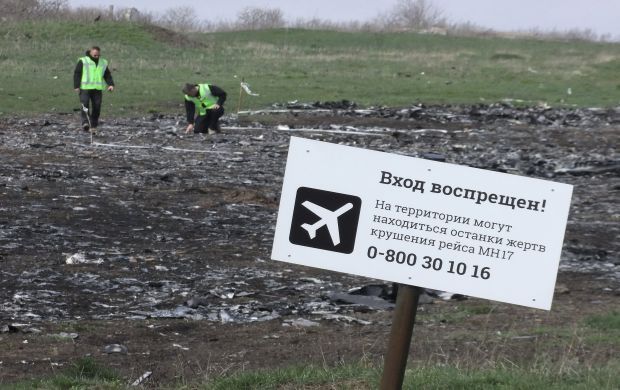
In a situation of conflict, there can be no objectiveness. This can be expected from the BBC, but, as international experience shows, if someone is trying to offer the objectivist view, this leaves all parties to the conflict dissatisfied.
Why have the topics of the occupied Crimea and Donbas have suddenly disappeared from the media agenda?
The issues of Donbass and Crimea were exhausted even before the end of 2015. The mass consciousness in Russia was disgusted at the mention of the word "Ukraine." Russians were "overfed" with the war in Donbas, "the Kiev junta,” and the expectations that “Ukraine is about to collapse under the weight of its own mistakes and crimes.” The journalists were also disgusted, they said: "this is unbearable, we can’t do it anymore." But that's not about the journalists – they’re just a tool in the hands of political power in the Russian disposition – it’s about the public being overfed, so they had to come up with something new to offer. And there was still no positive internal agenda. And then there was Syria. I'm not saying that the Russian Federation became involved in the war in Syria, only in order to create a new information agenda. It’s not so. But, nevertheless, this agenda has been extremely successful, because it has pushed aside the Ukrainian issue.
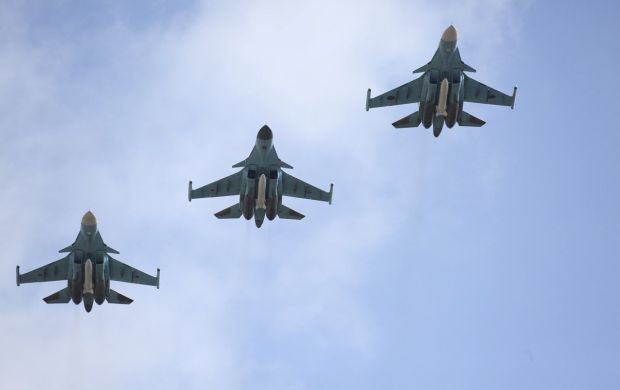
In addition, there were political reasons. By the summer of 2015, it has become clear that Russian plans for Ukraine came to their logical conclusion, and the Kremlin could not do anything further. It just couldn’t help the conditional “rebels” advance. Obviously, it was possible from a military-technical perspective, but the risks of such enterprise would be much higher than all possible benefits. In such a situation, it was necessary to shelve the Ukrainian issue. Imagine people who monitor the news on Ukraine. Sooner of later, they’d start asking a question: "when will we finally do something about it, how much can we wait?” It's easy to keep track of even when monitoring which news stories go first, and what their duration is. In autumn of 2014, the Ukrainian theme, of course, dominated. Six months later, Ukraine began to withdraw from the Russian information agenda.
While the Donbas and Crimean issues have left the Russian information space, the internal problems of Ukraine remain one of the most important topics. Why are the Russians being told so much talk about the fact that we will soon default, that the demand for real estate has dropped, and that everything is bad in general?
There are two reasons for that. First, this is the very expectation that Ukraine will actually collapse. And when you wait for such a long time, you start to hypnotize yourself, falling into a state of self-hypnosis, searching for signs of this fall. It's like the Soviet propaganda expected the collapse of world capitalism. Second, Ukraine is a very good and a winning background for Russia. Yes, Russia is going through a crisis, but there is a “civil war” in Ukraine, and everything is about to collapse there. Things are not OK over here, but there is order, and there is hope for the better, they say.
Creating a background is a favorite method of any propaganda. If things are going really bad, try to find a country where everything is allegedly worse. Russia was lucky – it was its neighbor, with whom we are linked historically, culturally, and personally. Therefore, this comparison is very well understood by the Russians.
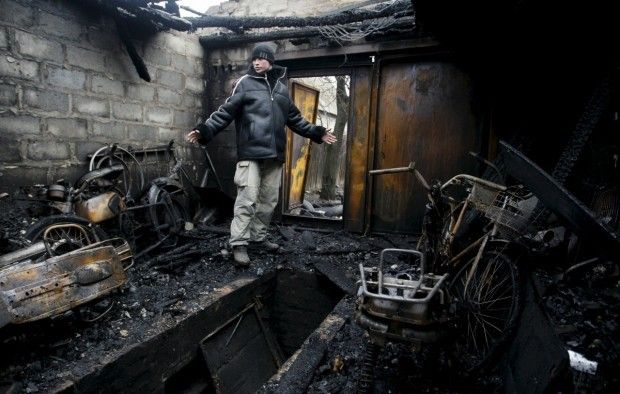
Russian propaganda chooses the stories that are profitable for it. For example, migrants in the Western countries who chase women, mass violence, homosexuals chasing straights, (if I'm exaggerating, then only a little bit)... We have to show the worst, to create a favorable background for the Russian reality.
There is also an impression that the main mystery – like a taboo – is the number of Russian citizens who were killed during the operation to seize Donbas. Do you think someone does any calculations in the Russian Federation?
I have no doubt that there is an exact number of victims, "the vacationers," because of their affiliation to certain types of armed forces. As for the "volunteers," there are no such calculations. In my opinion, no one starts this campaign for a very simple reason. It’s not because the Russians are heartless and rigid, but because any public organization announcing it wants to collect data on losses will be doomed to a very strong pressure from the authorities. No one has taking up this job. It’s frightening. The losses are classified.
What is the purpose of the emphasis on the promotion of the army, security forces, weapons, all these victorious slogans referring to WWII, threats that "we can repeat this"?
Unfortunately, this is natural. If you have nothing to proud of in the actual reality, you resort to such a trick. Sochi Olympics was held two years ago. What now? Any economic success? Building a state for the people? Look what are the hallmarks of a modern country: Germany boasts its developed economy and welfare, France – its Gallic exclusivity and cultural contribution, the United States – the world’s most dynamic economic system. They are proud of what is here and now. Any the public feels the need for national self-esteem, it needs a source of pride. The only things that unites us, the Russians, is the Victory Day on May 9. Besides this date, there is also another holiday – the New Year.
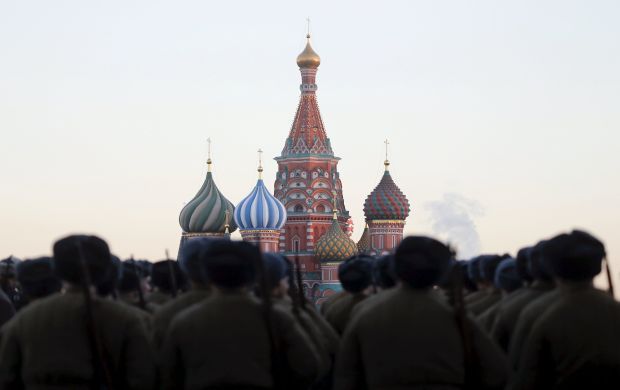
So, the veterans earlier perceived May 9 as a day of mourning, and now it has turned into a day of heroic self-assertion and glorification of the armed forces. These hysterical slogans: "We can repeat this!" and "Piece of cake!" are ridiculous and insulting at the same time. It corrupts public morale, breaks all moral landmarks. In the future, this will be a very serious problem, there will be a moral disorientation of society.
Can Ukraine be proud of anything?
Ukraine has things to be proud of. The very fact that Ukraine stood strong against Russia (while Ukraine is weaker by the influence of the economy and military prowess) should be respected and serve as a source of pride for the Ukrainians. To stand against the pressure from the Russian side is not easy. You may not fully understand what happened.
The events of the last two years have put a final end to the post-Soviet history. The post-Soviet historical inertia was over right there, in the steppes of Donbas. Now begins a new life, and not only for Ukraine but also for Russia. This is a very important event. When we are part of the process, we cannot evaluate the historical consequences. After some time, it will become clear what happened.
In such a situation, what will be the Kremlin’s policy toward Ukraine? It seems Moscow can hardly just leave Kyiv alone…
I feel that the main strategy is waiting. They will wait for something really bad to happen in Ukraine, for some crisis, which will once again allow speaking about the incapacity of the Ukrainian state; some protests that will once again allow talking about federalization.
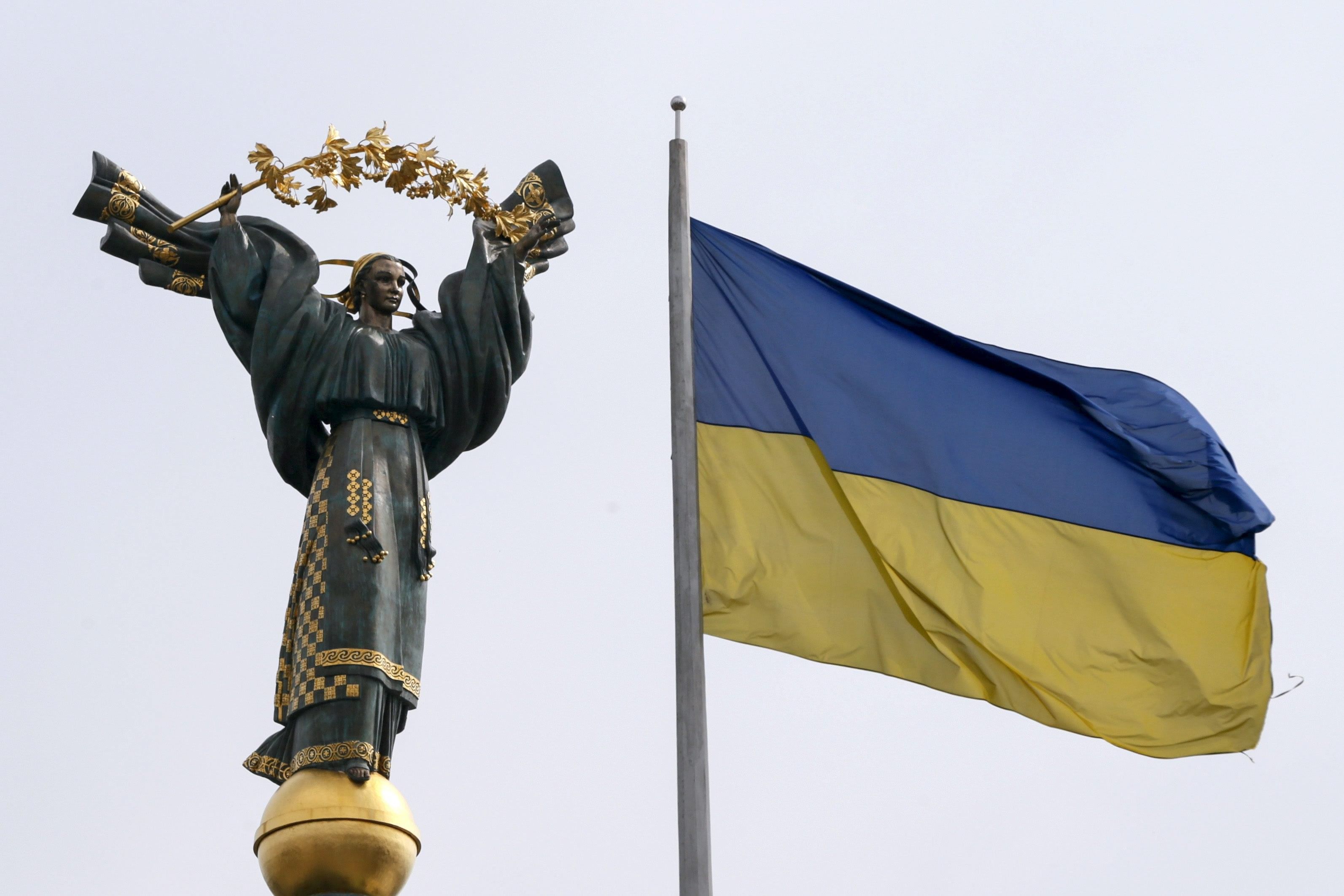
Second, Russia expects that the West will get wary of Ukraine, and it will get tired of supporting it. It expects that the West will become convinced that all the Russians were saying ("Ukraine is a state impossible to deal with, it is inefficient") is confirmed. It expects that the West will just say that it will no longer support Kyiv. In my opinion, it is absolutely in vain. Ukraine won’t collapse, and neither will the West leave Ukraine, although it will be unpleased and it will be demanding reforms.
In general, the expectation is now the focal point of Russian politics in everything. If you try to characterize the Russian economic strategy, you will see that waiting is also an important thing.
Is it expecting the rise of the oil prices?
Including. For two years, government officials have expected that oil prices would rise, and it is better not to do anything until that happens, simply maintaining the functioning of the economic organism. Now the rise in oil prices is delayed, and it became apparent that it will not regain the former $100 per barrel. Well, then it may at least be at $50-60…
The second expectation is that the economy adapts itself. Partly, that’s what actually happened. Another thing is that it is an adaptation for the cost of degradation: deterioration in the quality of development, mass impoverishment, deprivation of the people of any prospects. There was no anti-crisis strategy, just words.
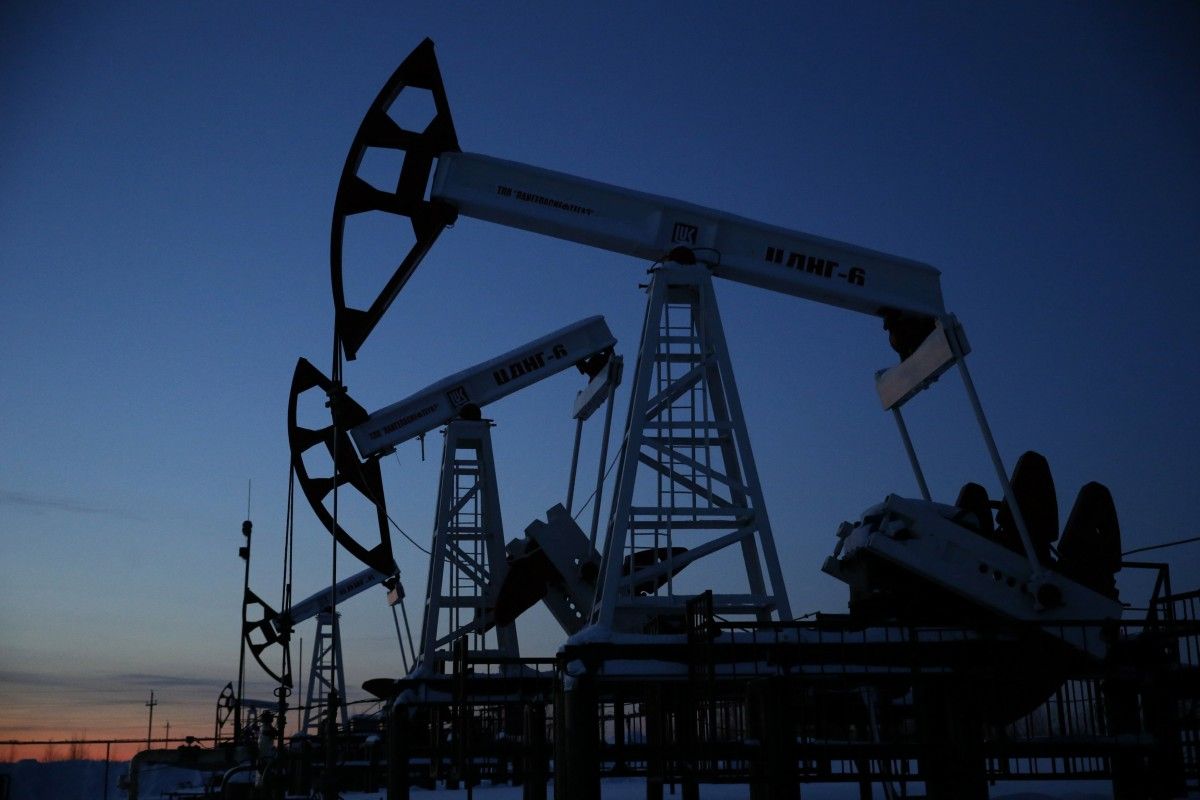
Waiting is a focal point of Russian politics in everything. In regard to Ukraine, as well. And another point is punching Ukraine, where possible, forgetting that at the same time, it is also unprofitable to Russia. Remember, Russia gave Yanukovych a $3 billion loan. After that, the Russian media claimed that this money is guaranteed and that Ukraine will return it. But Ukraine is not returning it. Moreover, it announced an indefinite moratorium on repayment. What's happening now? You no longer find a mention of this loan in the Russian media. All topics that are not beneficial for Russia, are purged from the media.
The Kremlin very often says that they can influence the leaders of the "occupied" Donbas. Do you think these “leaders” can do anything at all without the Kremlin’s signal?
They do have some degree of freedom but in a very rigid framework. They know that one step left or one step right – they’ll get shot, figuratively and objectively speaking. The death of a number of militant leaders shows that their freedom is limited with bullets. This is the most reliable limiter in the world. They are well aware of this and they try not to go beyond the “freedom limits.”
Roman Tsymbaliuk, Moscow

